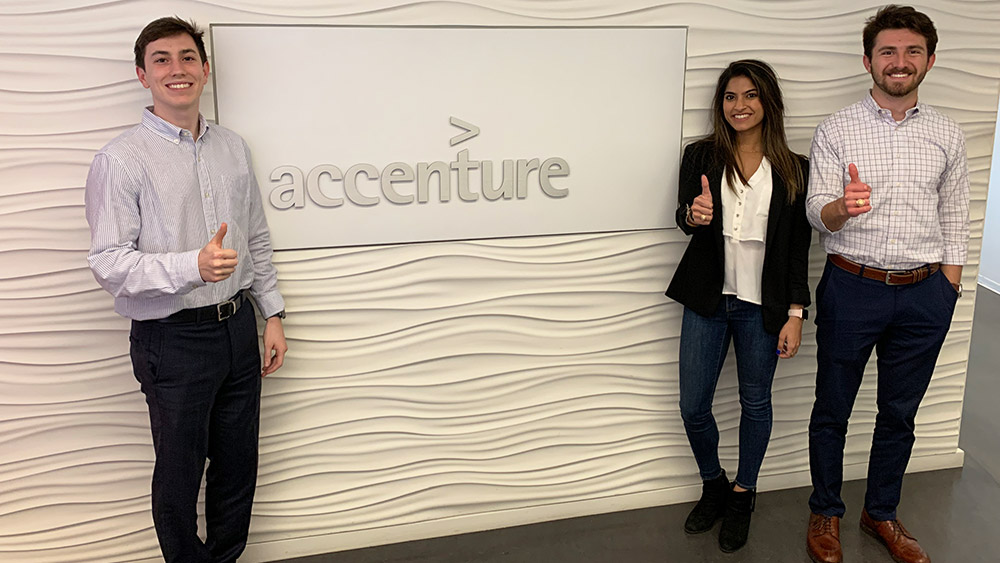
Daring themselves in an unprecedented time, a team of three Texas A&M University students participated in the Accenture Innovation Challenge during the spring semester, successfully making it into the final round of the competition.
This year, Accenture, and nonprofit organization Waterkeeper Alliance, partnered to create the national Accenture Innovation Challenge, which allowed students an opportunity to work on a business case. Formed by Accenture, the Texas A&M team was made of three seniors: finance student Ashni Shah, electrical engineering and engineering honors student Michael Sporkin, and mechanical engineering student Harrison Vickers.
On a national scale, Waterkeeper Alliance focuses on protecting the Earth’s clean water resources. The team was asked what Waterkeeper Alliance could do differently and was tasked to build and refine their solution from an abstract idea to a fully-implementable business plan, with the aim to advance through the three rounds of competition.
“I wasn’t sure of the team dynamic until our first online meeting, however, I was extremely satisfied with my team members and their eagerness to compete and win this competition,” Vickers said.
The first round was held in Houston, consisting of several teams from universities around the district. The team proposed modifying startup microfilter technology to be used as a smart filter at the back of laundry machines, capturing all of the microplastic waste released in the wash. Shah said that although they were confident and did their best to present a solution they came up with hours prior, she was unsure how they ranked among the other competitors.
“When we found out we had been selected to move on to round two, it felt amazing,” Shah said. “I had only met my team for the first time in person that day, and it felt great to know that strangers could work together to create a tangible solution worthy of the next round.”
In preparation for the second round, the team had to refine their solution with more detail and direction. Because the regional competition was held virtually, it became more important for the team to build a presentation that communicated their solution without having to explain it in person.
“We added supplemental background research and numbers and built a deck that told a story that explained not only why our solution would work but was critical to protecting Earth’s water resources,” Sporkin said.
Due to the virtual aspect of round two, Shah said it became more difficult to gauge the team’s chance of advancing to the final national competition that was initially meant to be in New York. Fortunately, after waiting for an update, they received an email congratulating them for advancing.
“We were all excited to represent our university on a national scale, but I did not realize the competitiveness of round two until we were in the final round. At that moment, our team was proud to have made it that far,” Shah said.
The team realized that they were in the top four of 60 teams given the opportunity to progress to the final round. Ultimately, due to the COVID-19 pandemic, the final round was moved remotely.
“It was a disappointment when we found out that the final round would be held over Zoom,” Shah said. “However, the Accenture team did an amazing job planning and executing the final round amid all the uncertainty.”
Although Shah, Sporkin and Vickers achieved many accomplishments in this Accenture Innovation Challenge, they did not win the final round. Despite this, the team learned versatile lessons.
“The best solution to a problem isn’t always the best solution for a client,” Sporkin said. “We offered a tangible potential path to fight a global problem, but our plan didn’t match the client’s culture or current operations. Approaching situations with empathy for both those impacted and those trying to help is critical to finding a solution that works.”
The team is now using the skills they gained in the Accenture Innovation Challenge to progress in their careers.